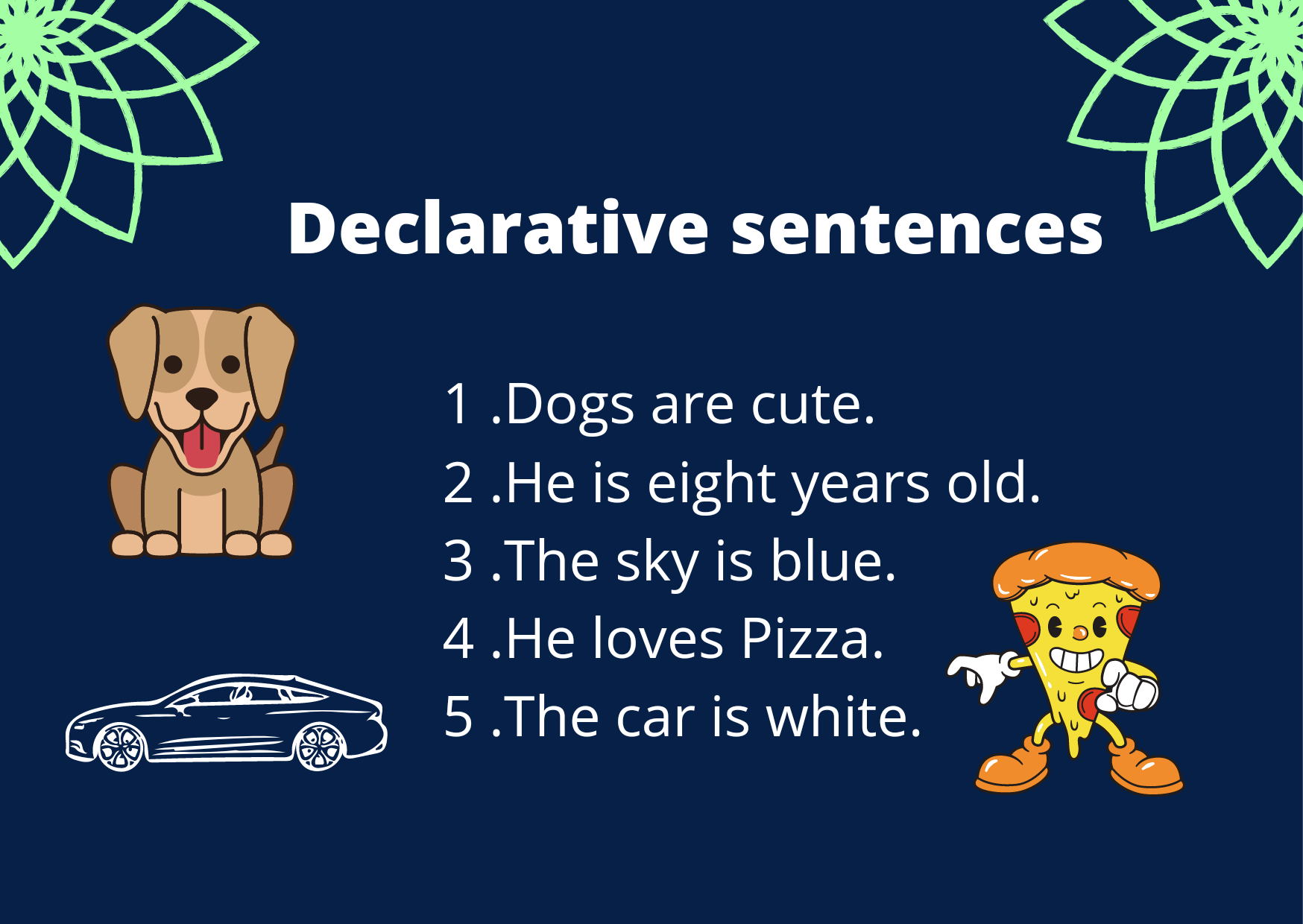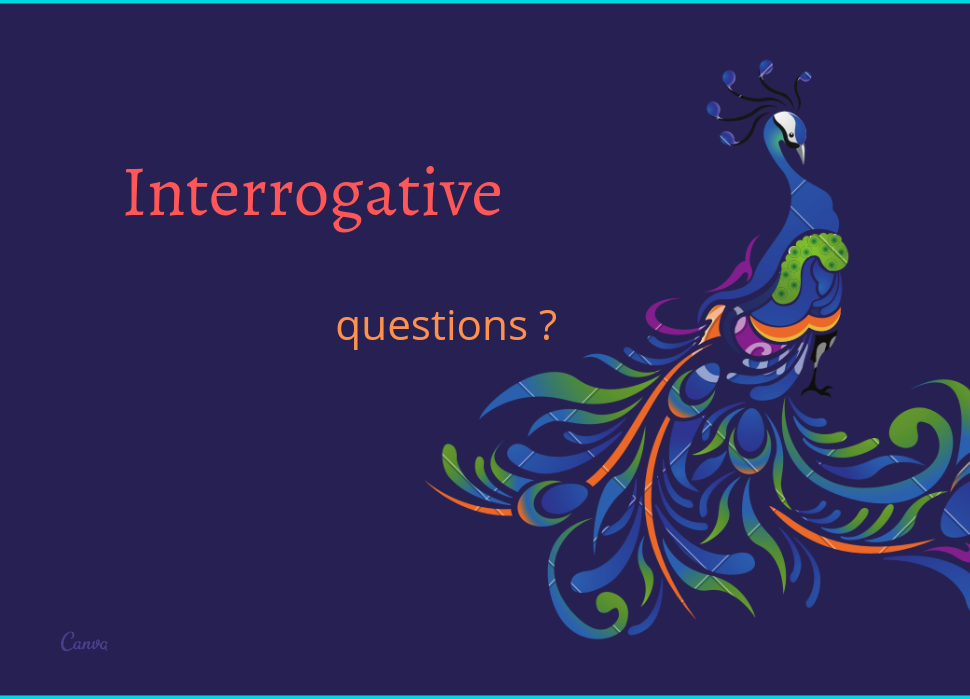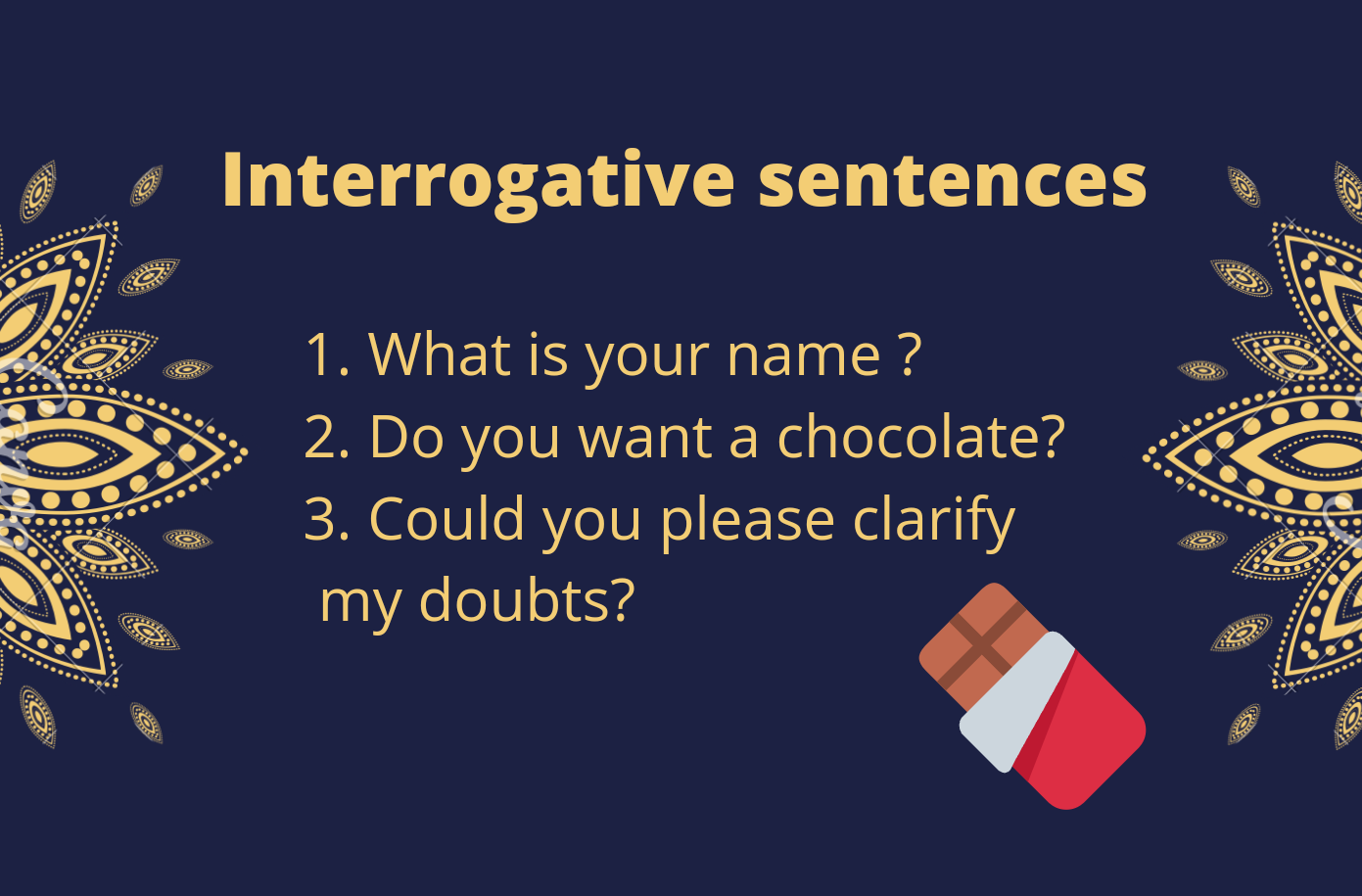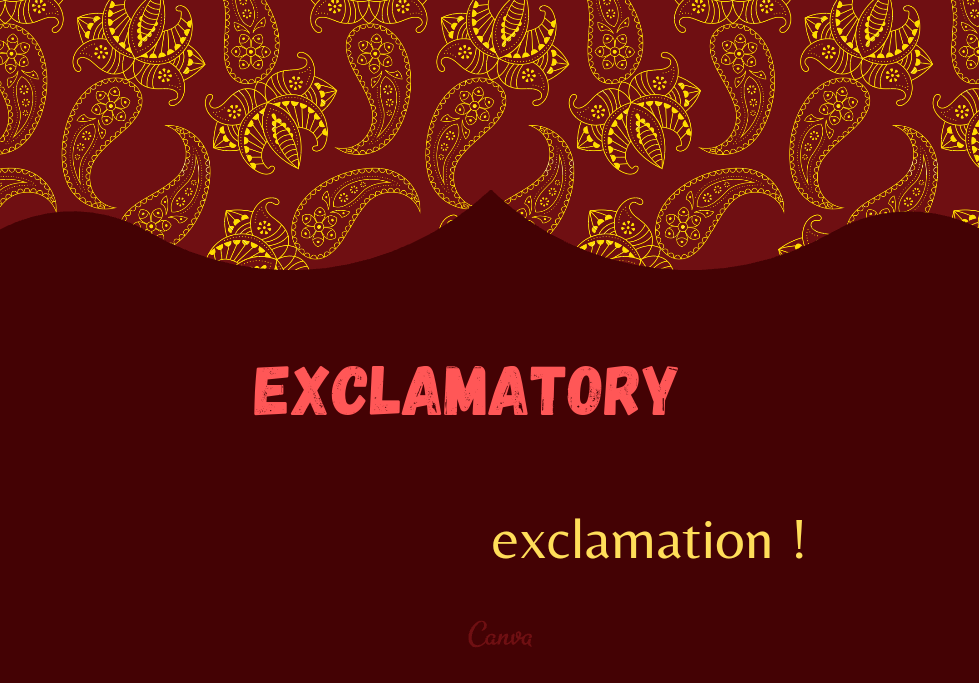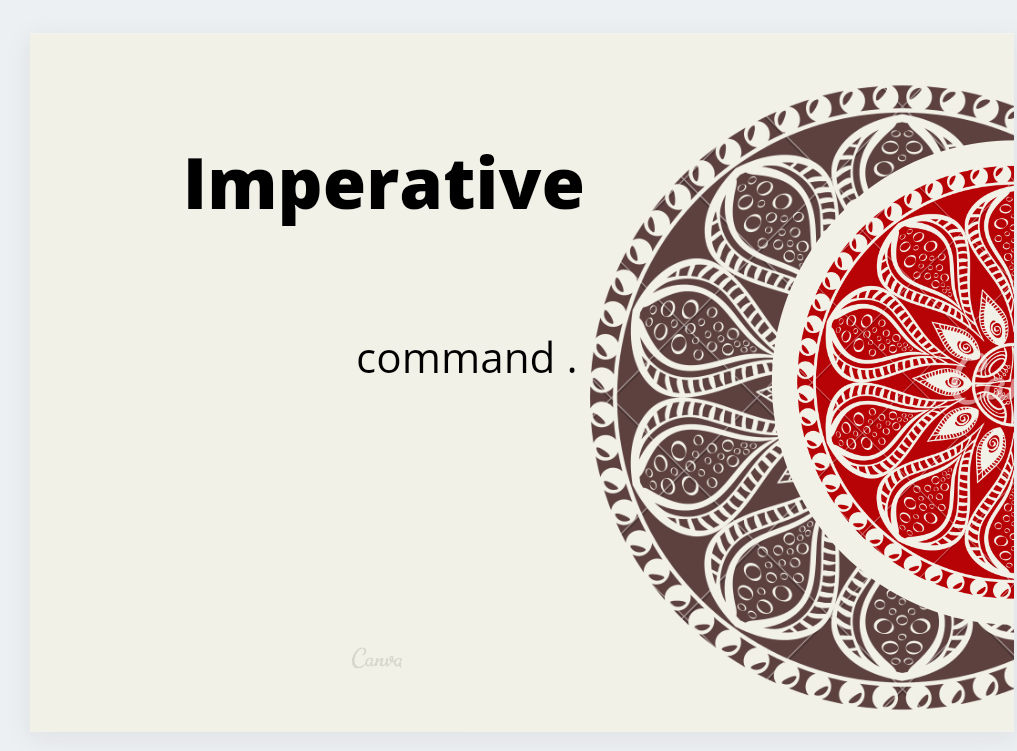What will you learn
You will learn the four types of sentences
* Declarative / Assertive
* Interrogative
* Imperative
* Exclamatory
What will you achieve
* When you understand each unique type of sentence, you’ll become a stronger writer.
* You can express your emotions clearly through writing , when you learn the types of sentences.
Types of sentences
There are four types of English sentence, classified by their purpose
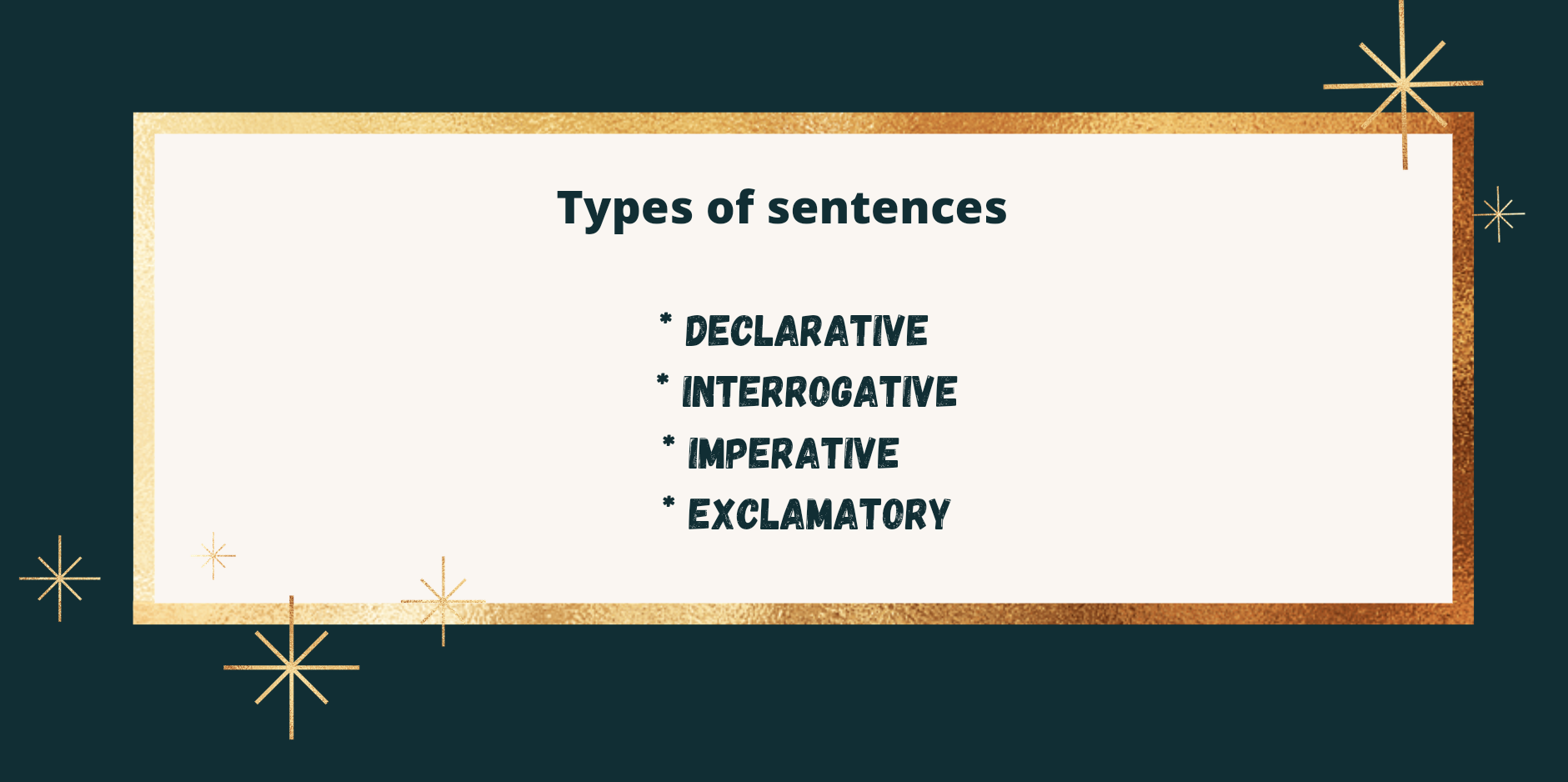
They tell us something. They give us information,
1. Declarative
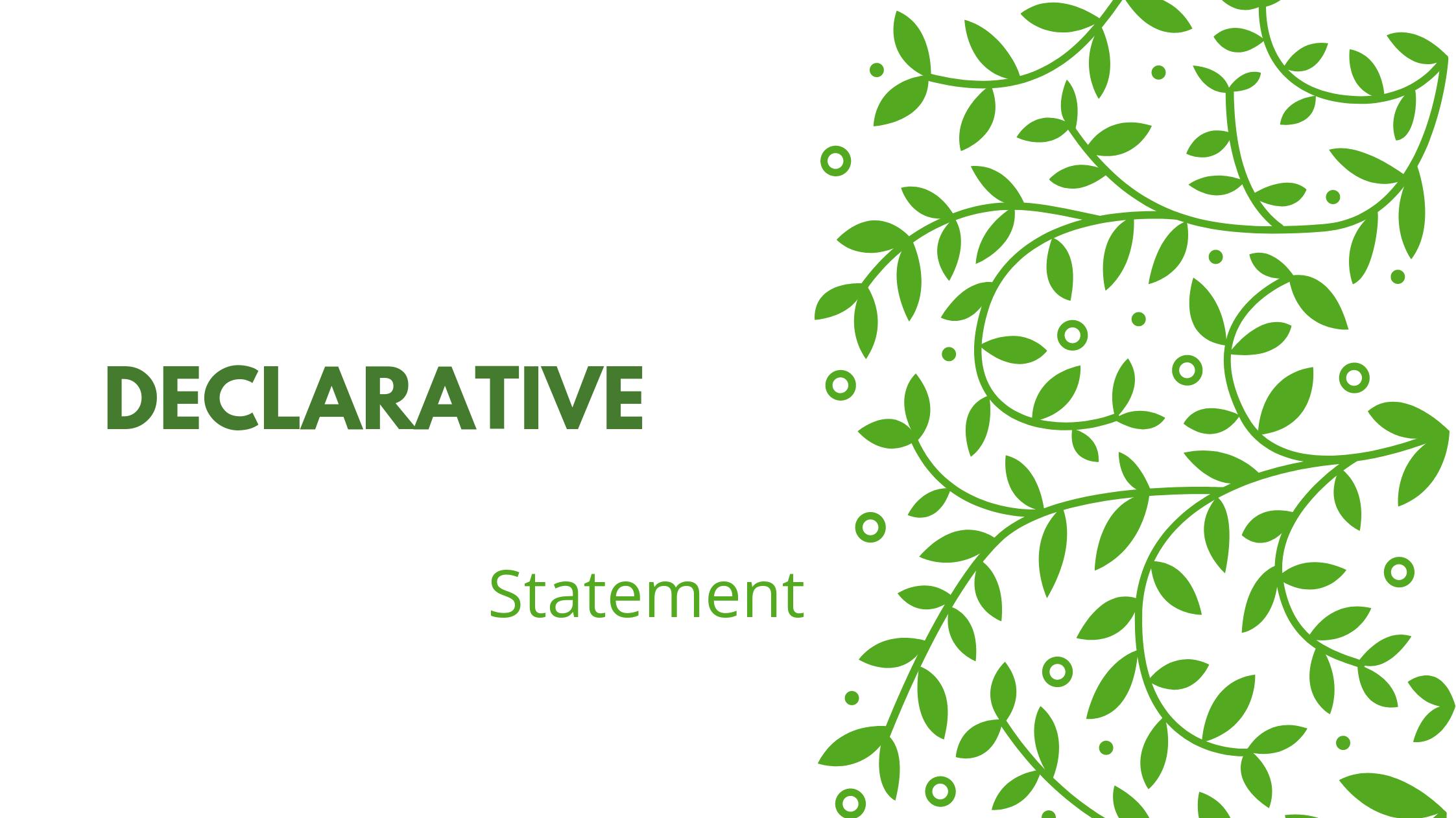
* A declarative sentence states the facts or an opinion and lets the reader know something specific.
* It always ends with a period.
Some basic declarative sentence examples are:
1. He plays.
2. She sings.
3. I like drawing.
4. Ryon feels happy.
5. My cat is black.
Declarative sentence can be a simple or compound sentence.
Compound declarative sentences are joined by a comma and a conjunction such as and, yet, or but.
Some examples of compound declarative sentences are:
1. He wanted to play football, but she wanted to play basketball.
2. Marie loves the beach, yet she hates sand.
3. She plays the piano, and he sings along.
4. She had to make the next flight; she quickly packed her bag.
5. The house has new windows; however, the roof still leaks.
2. Interrogative Sentences
* They ask us something.
* They want information, and they always end with a question mark.
For example:
1. What is your name?
2. Do you have a pencil?
3. Whose book is this?
Compound sentences can be interrogative:
1. Who are you and why are you here?
2. How much does it cost and why do you need it?
3. I don’t know his home phone number, so can you call his cell phone?
3. Exclamatory Sentences
They are similar to declarative sentences in that they provide information, but they end in an exclamation point instead of a period.
For example:
1. What a beautiful palace!
2. Wow, he just won a gold medal!
3. Alas, she lost her purse!
You can make exclamatory sentences with compound sentences as well:
1. My new job is a wonderful opportunity and it offers great benefits!
2. We knew you wanted to visit Paris, so we bought you a ticket!
4. Imperative Sentences
They tell us to do something.
Many imperative sentences end in periods, but some of the more forceful demands may end in an exclamation point to highlight the emotion.
For example:
- How he lied!How exciting the movie was!
- Please shut the door to keep out the bugs.
- Turn left at the bridge.
- Stop bothering me!
You’ll find compound imperative sentences like this:
- Put your phone away and listen to me!
NOTE
That there is usually no subject—because the subject is understood, it is YOU.
Example
- Stop!
- Give me my money.
![]()
